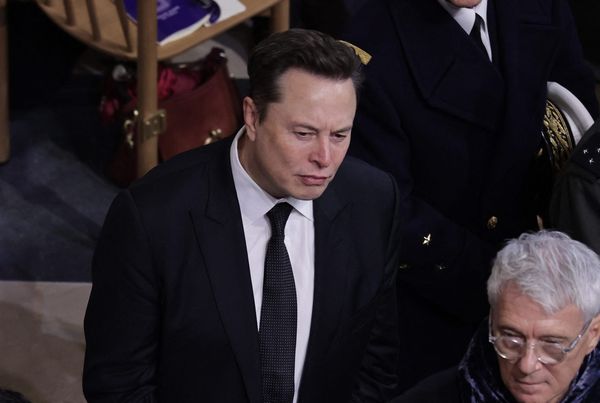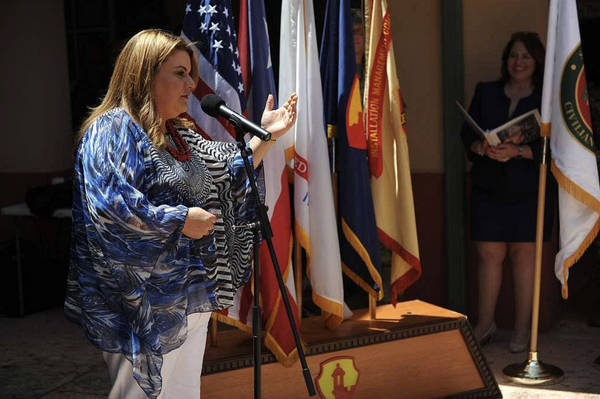Both the Democratic Progress Party (DPP) and the Kuomintang (KMT) have announced their candidates for Taiwan’s presidential election, which will be held on January 11, 2020. Amid the presidential race, many suspect a third candidate may throw his hat in the ring. This would be Taipei Mayor Ko Wen-Je (柯文哲), a political independent.
In 2018, Ko won the mayoral re-election by only 3,567 votes, barely beating his KMT opponent, Ting Shou-chung (丁守中), by 0.25%. After his re-election, however, almost every polling company has treated Ko as a potential presidential candidate. Both the DPP and KMT treat him as an imaginary opponent in their respective primary polls, despite Ko never having officially announced his desire to run.
Why is a mayor, who almost lost his re-election and who has never declared a run for the presidency, widely considered to be a presidential hopeful? His popularity can be understood through examining Taiwan’s political traditions and the composition of his support base.

Taipei Mayor as a Stepping Stone to the Presidency
Since Taiwan had its first direct presidential election in 1996, it seems to be inevitable for every Taiwanese president to have “Taipei mayor” as part of their resume. Three former presidents Lee Teng-hui (李登輝), Chen Shui-bian (陳水扁), and Ma Ying-jeou (馬英九), all served as the mayor of Taipei before later becoming president, until current incumbent President Tsai Ing-wen (蔡英文) broke the 20-year streak in 2016 with her election victory.
The mayor of Taipei controls enormous executive resources, with an annual budget of around NT$150 to NT$170 billion. As the capital of Taiwan, Taipei tops every other district government in both income and expenses. With a large financial budget at their disposal, the Taipei mayor has a high capacity to perform well. And since Taipei is the capital, its mayor usually captures much more media attention than mayors from other districts.
Even the nominees for Taipei’s mayoral position are usually political celebrities. They are often reputable, experienced, well-liked, and considered rising stars in their parties. After his or her mayoral term ends, it makes sense for such an individual to keep climbing up the political ladder to reach the presidential office.
Historically, Taipei has been seen as largely pro-KMT. With the exception of Chen Shui-bian winning the 1994 mayoral election due to a split in the pan-Blue camp, the position of Taipei mayor is usually thought of as a sure win for the KMT.
How did Ko Wen-je, an independent candidate, win the 2014 Taipei mayoral election then? His unprecedented victory in 2014 is what has led him to be touted as a potential presidential candidate in the present.

Ko is the First Ever to Surpass the Blue and Green Camps with His “White Force”
Ko was originally a doctor, but he was not afraid to voice his honest opinions about controversial topics. As a result, he slowly became a favorite of the media. The public praised his stance on the death of Hung Chung-Chiu in 2013 and the Sunflower Movement in 2014. Ma’s unpopular second-term presidency also turned voters away from the KMT, starting in 2012.
Already frustrated with his career at the National Taiwan University Hospital, Ko rode the popular wave of dissatisfaction and dived into politics.
In 2014, the DPP decided to endorse Ko in the Taipei mayoral race, since he was much more popular than any of the DPP’s own candidates at the time. Although Ko received support from the DPP, he remained a political independent and ran his campaign with the slogan “Beyond Blue and Green.”
In the end, Ko received 850,000 votes, just shy of Ma’s 870,000-vote record in 2002. With a similar voter turnout to the previous elections, the result implied that many KMT and median voters had turned their back on the ruling KMT and supported Ko instead.
Riding on the wave of public dissent against the KMT, Ko became the first politically independent Taipei mayor in Taiwan’s history. His success was like a fresh breeze for voters who had become sick of continual fighting between the pan-Blue and pan-Green camps, which also made him a popular potential candidate for the 2020 presidential race.

An Independent Third Candidate that is Popular Throughout Taiwan
If Ko’s popularity is limited only to Taipei, then his chances of winning the presidential race are slim. However, voters from all over Taiwan share high hopes for him. According to a TVBS poll in July, Ko scored a 39-percent support rate among the 27-percent of median voters, surpassing both current presidential candidates, Han Kuo-yu (韓國瑜) and Tsai. It has been a long-term trend that Ko has steady support among median voters.
In terms of districts, Ko has earned the support of 22- to 33-percent of voters from both northern and southern cities. Ko is especially popular among young voters, with 45-percent voter support from the age group between 20 and 29, and 42-percent support from those between the ages of 30 to 39. These voters, in particular, can alter online opinions through the power of social media.
With this powerful “white force” behind and experience as the mayor of Taipei under his belt, Ko is undoubtedly a powerful imaginary enemy for both the KMT and DPP.
However, in consideration of political reality in Taiwan, Ko’s chances of winning the presidential race are not quite as high.

After Ko Forms the Taiwanese People’s Party, Does This Improve His Chances of Winning?
Ko’s announcement of the establishment of a new political party, named the Taiwan People’s Party (台灣民眾黨), created a splash in Taiwan’s political scene last week. That Ko intends to run in the 2020 presidential race has also become clearer after the party’s registration.
Ko may not have the political baggage that comes with a party, but on the flip side, he also lacks the organizational power and mobilization capacity of a traditional political party. In 2014, he won the mayoral race effortlessly with support from DPP, but he almost lost last year’s re-election under pressure from both the DPP and the KMT. If Ko had to struggle as an independent candidate for just a mayoral election, how well would he perform in a national election?
Ko’s forming a political party was inevitable, but this does not mean Ko is aiming for the presidency. Once the news about his party formation broke out, Ko’s aides revealed to the media that they hoped to obtain support from at least 10 legislators — and this is why he formed a new party.
The biggest roadblock for Ko’s participation in the presidential race is his distance from the grassroots voters. Once the race intensifies, core voters for both the KMT and DPP would return to supporting their party candidates, and support for Ko would slide. If Ko does not have a campaign team in the center and the south of Taiwan, it’s impossible for him to appeal to the grassroots in those areas, where voters are usually seen as feeling much stronger ties to their party.
What Impact Would Ko Have on the Other Two Presidential Candidates?
If Ko decides to run for the presidency, he will split votes from both the KMT and DPP.
Most polls show that Ko's participation would have a bigger impact on Tsai. In the same TVBS polling result, both Han and Tsai would be able to gather over 90-percent of voter support from their respective party, but Tsai has a slight advantage with the median voters. However, if Ko competes in the race, he would snatch 39-percent of the median votes, most of which would be taken from Tsai.
Ko's power lies in his appeal to the median voters, who will have a decisive influence in the 2020 presidential election. If he does declare a run, Tsai could potentially be the first Taiwanese president to lose re-election.
Taiwan's political atmosphere, however, has been changing drastically since the 2018 local elections. Much that previously seemed impossible has become possible. And since Ko's support base largely comes from the unpredictable median voters, it is inherently hard to foresee the outcome.
Ko is unlikely to become president next year, but his real motive may be to build his political network outside of Taipei. When his mayoral term ends in 2022, he will be more than qualified to run in the 2024 presidential election with a well-established team under his command.
Translator: Daphne K. Lee
Editor: Brian Hioe (@thenewslensintl)
If you enjoyed this article and want to receive more like it in your news feed, please be sure to like our Facebook page below.







